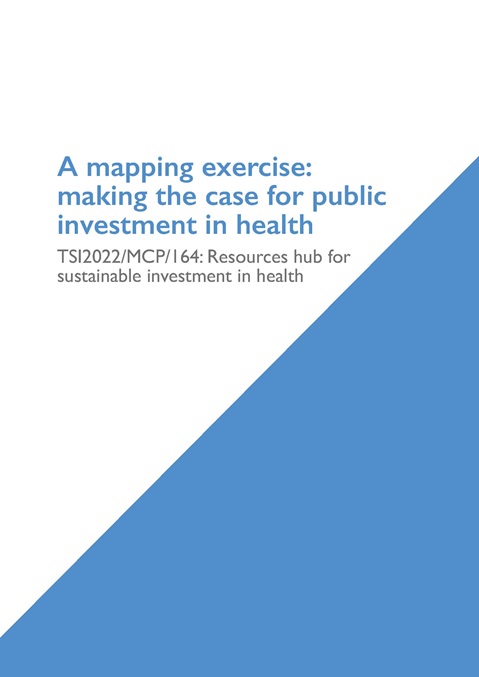A mapping exercise: making the case for public investment in health

Overview
How can policy makers make the case for more public spending on health? How can they better demonstrate the societal and economic benefits of already undertaken or planned public investments in health? What arguments, data and tools are available to aid in budget negotiations?
In many countries, fiscal pressures coupled with growing demand for health care has made it necessary to strengthen the case for adequate public funding for the health system. The case for greater public funding for health tends to be most successful when it aligns well with the goals and objectives of public finance stakeholders, which means that health policy makers need to be equipped with good lines of argument and evidence.
This report provides the results of an exercise that was undertaken to map analytical approaches and tools for making the case for public spending on health. It provides a framework which brings together five key lines of argument and selected examples of tools, data, indicators and methods that can be used to make the case for – and address common concerns around – public funding for health by meeting key public financial management objectives. It also discusses other enablers of successful negotiations between health and finance policy makers. It concludes that while data and evidence can help decision makers towards good choices (or away from bad ones), other factors such as cooperation, communication, transparency, accountability and trust provide the fuel that can push the budget case for health forward effectively and successfully.
This exercise was conducted by the European Observatory on Health Systems and Policies within the scope of the Technical Support Instrument (TSI) project on building a European Union (EU) Resources Hub for Sustainable Investing in Health. The project is overseen by the European Commission’s Directorate General for Structural Reform Support (DG REFORM) and sees three Member States (Austria, Belgium and Slovenia) partnering up to address the common challenge of making the case for investing in health and accessing EU funding instruments to do so.